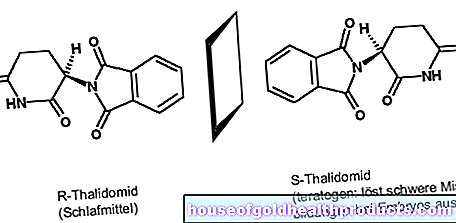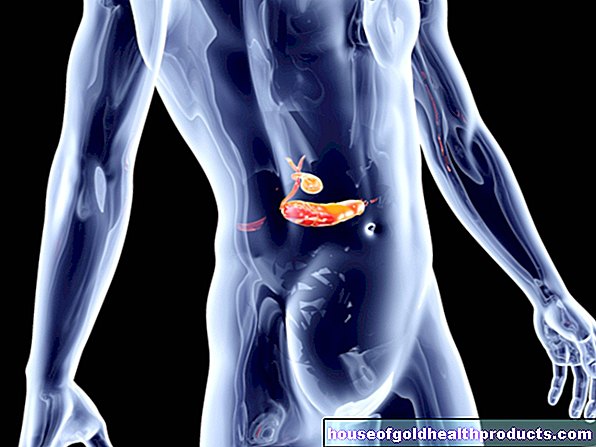Thick and sick from emulsifiers
All content is checked by medical journalists.MunichThey are found in ice cream and chocolate, sausage products, ready meals and bread: Emulsifiers improve the consistency of foods that contain fat and water. Now it has been shown that these additives could have pitfalls: They apparently disrupt the intestinal flora and thus promote inflammation in the intestine as well as obesity.
In the food industry, emulsifiers have been used in countless products for many years. In terms of food safety, they were classified as harmless. In fact, they do not appear to be cancerous or directly toxic. However, they may develop their unhealthy effects slowly - and thus for a long time in secret.
"What we eat has a major impact on our intestinal flora. That is why we suspected that modern food additives might alter the intestinal bacteria in such a way that they promote inflammation," explains Benoit Chassaing, a researcher at Georgia State University.
Changed bacterial mix
Together with his colleague Andrew Gewirtz, he mixed two common emulsifiers into the drinking water of mice: polysorbate 80 (E433) and carboxymethyl cellulose (E466). The scientists then examined the intestinal flora of the animals. They noticed far-reaching changes. The composition of the intestinal flora had changed. The bacteria from the order of the Bacteroidales, considered to be beneficial, became fewer, while species such as the mucus-degrading form Ruminococcus gnavus or the pro-inflammatory Proteobacteria increased.
And there was another effect: normally, intestinal bacteria keep a strict distance from the walls of the intestine - they are separated from them by a layer of mucus. However, this distance was halved under the influence of the emulsifiers. Sometimes intestinal bacteria even had direct contact with the cells of the intestinal wall.
Inflammation and weight gain
This had far-reaching consequences: Mice, which were susceptible to intestinal inflammation due to their genetic makeup, developed severe inflammation in the large intestine. Although this reaction was only mildly pronounced in less sensitive animals, the researchers found signs of a metabolic syndrome in them. In addition to being overweight, this also includes type 2 diabetes, cardiovascular diseases and liver problems.
"An altered intestinal flora that promotes inflammation plays a key role in these diseases," says study author Gewirtz. The scientists are calling for food additives to be examined more thoroughly than before before they are approved. In particular, the long-term effects should also be taken into account.
More fat, more intestines
Inflammatory bowel diseases such as ulcerative colitis and Crohn's disease can be severe and severely impair the quality of life. More and more people in the western industrialized nations suffer from such diseases. Obesity and metabolic syndrome are also increasing rapidly. There is increasing evidence that a changed intestinal flora could also play a role. (cf)
Source: Benoit Chassaing et al: Dietary emulsifiers impact the mouse gut microbiota promoting colitis and metabolic syndrome. Nature, 2015; DOI: 10.1038 / nature14232
Tags: interview foot care smoking





























